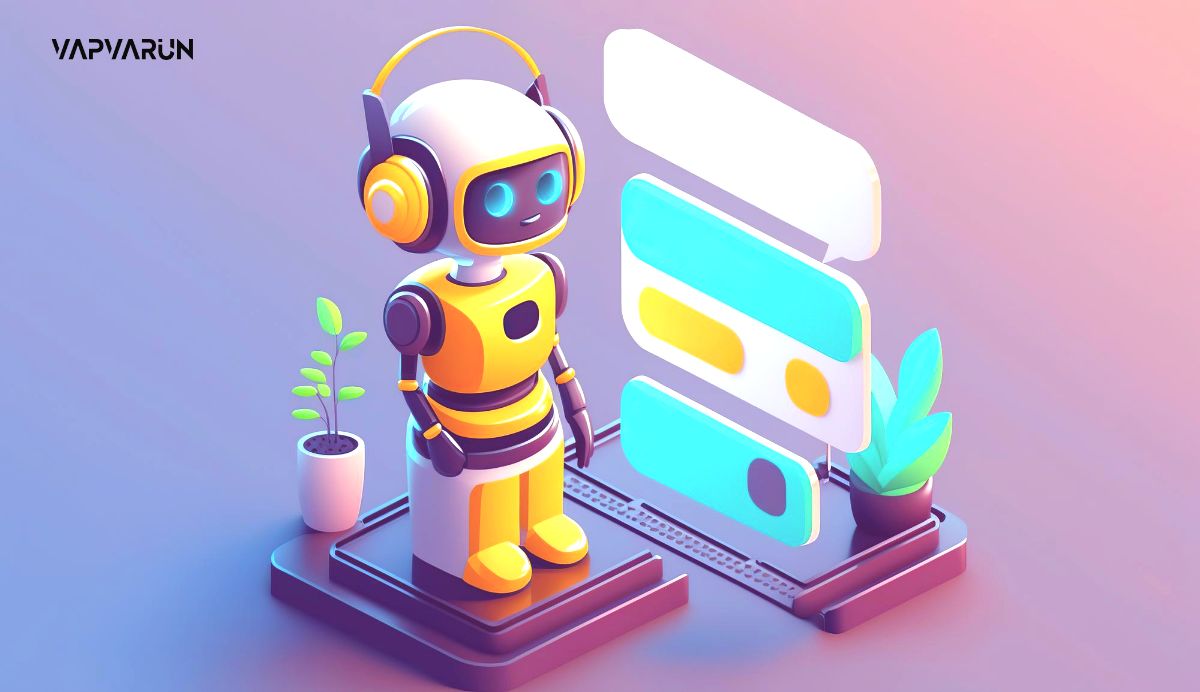AI code generators are tools or systems that use artificial intelligence (AI) techniques to automatically generate source code or programming scripts. These generators can assist developers in creating code quickly and efficiently by automating certain aspects of the coding process.
AI code generators utilize various techniques such as machine learning, natural language processing, and pattern recognition to understand requirements, specifications, or examples provided by the developer. Based on this understanding, they generate code that meets the desired functionality or behavior.
There are different types of AI code generators available, each catering to specific programming languages or domains. Some generators focus on generating complete applications or components, while others may focus on specific tasks like generating code snippets or templates.
AI code generators offer several potential benefits. They can save time and effort by automating repetitive or boilerplate code generation tasks. They can also help reduce human errors and improve code quality by adhering to best practices and standards. Additionally, they can assist developers in exploring alternative solutions or variations by quickly generating and evaluating multiple code options.
However, it’s important to note that AI code generators are not meant to replace human developers. They are intended to be tools that augment and assist human developers in their coding tasks, providing them with suggestions, accelerating development, and enhancing productivity. Human expertise is still crucial in understanding complex requirements, designing system architectures, and maintaining codebases.
7 Best AI Code Generators
There are several AI code generators available today, each with its own strengths and focus areas. Here are some popular AI code generators:
GitHub Copilot: AI-powered coding assistance
GitHub Copilot is an AI-powered coding assistance tool developed by GitHub in collaboration with OpenAI. It is designed to provide intelligent code suggestions and autocompletion to developers directly within their code editors.
GitHub Copilot leverages OpenAI’s Codex model, which has been trained on a vast amount of publicly available code repositories. It uses machine learning techniques to analyze the context of the code being written and generates relevant code suggestions in real-time. It supports multiple programming languages and integrates with popular code editors like Visual Studio Code.
The goal of GitHub Copilot is to help developers write code faster and more efficiently by reducing the need for manual typing and repetitive tasks. It can generate entire functions, classes, and code snippets based on the provided context or prompt, making it useful for tasks like writing boilerplate code, exploring APIs, or implementing common patterns.
However, it’s important to note that GitHub Copilot is meant to be an assistant and not a substitute for human developers. While it can provide helpful suggestions, it’s still important for developers to review and understand the code it generates to ensure correctness, security, and adherence to project-specific guidelines.
GitHub Copilot was released as a technical preview in June 2021 and has gained significant attention in the developer community. It is expected to evolve and improve over time as more developers use it and provide feedback.
TabNine: Best for autocompleting code in real-time
TabNine is an AI-powered autocompletion tool that provides real-time code suggestions as you type. It uses machine learning models to analyze your code context and provide intelligent autocompletion to accelerate your coding process.
TabNine supports a wide range of programming languages and integrates with popular code editors and IDEs such as Visual Studio Code, IntelliJ IDEA, and PyCharm. It works by analyzing the patterns and structures in your code to generate accurate and context-aware completions, including variable names, function calls, class definitions, and more.
One of the key strengths of TabNine is its ability to generate completions for long and repetitive code segments. It can assist with writing boilerplate code, filling in complex function calls, and suggesting relevant snippets based on the context of your code. TabNine’s suggestions are often highly accurate and can help reduce typing time and prevent syntax errors.
TabNine continuously learns from user behavior and adapts to individual coding styles and preferences over time. It can be further customized and fine-tuned to suit your specific needs by configuring various settings and options.
While TabNine is a powerful tool for code auto-completion, it’s important to note that it focuses on providing suggestions based on existing code patterns and may not be suitable for generating entirely new or complex code structures. It is designed to complement and enhance the coding experience by reducing manual typing and speeding up the development process.
TabNine is well-regarded by many developers as an effective real-time auto-completion tool, and it has gained popularity for its accuracy and efficiency in generating code suggestions.
OpenAI Codex
OpenAI Codex is a powerful language model developed by OpenAI. It is trained using advanced deep learning techniques on a massive amount of publicly available text data from the internet, including source code from various programming languages. Codex is based on the GPT-3 architecture and can generate human-like text based on given prompts or context.
One of the notable features of OpenAI Codex is its ability to generate code snippets and complete functions in response to natural language prompts. It supports multiple programming languages, including Python, JavaScript, Java, C++, and more. Developers can provide a description or example of what they want to achieve, and Codex can generate code that attempts to fulfill the desired functionality.
Codex is often integrated into various development environments, code editors, and platforms to provide intelligent code generation and completion capabilities. It can help speed up the coding process, assist in writing boilerplate code, suggest code corrections, and offer alternative implementations.
It’s important to note that while Codex is a powerful tool, the generated code should still be carefully reviewed and tested by developers. It may not always produce optimal or bug-free code, and human expertise is essential for ensuring code quality, security, and adherence to best practices.
OpenAI Codex has garnered attention and interest from developers due to its ability to understand natural language and generate code that aligns with the desired programming logic. It demonstrates the potential of AI models to assist developers in their coding tasks and streamline the development workflow.
Kite
Kite is an AI-powered code completion tool that aims to enhance the coding experience by providing intelligent code suggestions and completions in real time. It integrates with popular code editors such as Visual Studio Code, PyCharm, and Atom.
Kite works by analyzing the context of your code as you type and leveraging machine learning models to generate relevant and accurate code completions. It suggests function names, variable names, class definitions, and other code elements based on the patterns and structures in your code. The suggestions are designed to save you time by reducing the need for manual typing and by providing options that align with the expected behavior.
One of the notable features of Kite is its extensive support for multiple programming languages, including Python, JavaScript, Java, C++, and more. It continually learns from user behavior and adapts to individual coding styles and preferences. Kite also provides documentation and additional information for the suggested completions, making it easier to understand and use unfamiliar APIs or libraries.
Kite is designed to work alongside developers and aims to augment their coding abilities rather than replace them. While it can significantly improve productivity, it’s important for developers to review and validate the suggestions to ensure accuracy, maintainability, and adherence to project-specific requirements.
Kite has gained popularity among developers as a helpful tool for code completion, and it continues to evolve and improve based on user feedback and updates to its machine-learning models.
DeepCode
DeepCode is an AI-powered code review platform that focuses on identifying potential bugs, security vulnerabilities, and code quality issues in software projects. It uses static code analysis techniques and machine learning algorithms to analyze codebases and provide actionable recommendations for improvement.
DeepCode works by analyzing the source code of a project and comparing it against a vast collection of code patterns, best practices, and known issues. It looks for potential coding mistakes, performance issues, security vulnerabilities, and other code quality concerns. DeepCode can detect common programming errors, such as null pointer dereferences, resource leaks, and insecure coding practices.
The platform supports various programming languages, including Python, JavaScript, Java, C++, and more. It integrates with popular code repositories and development platforms like GitHub, GitLab, and Bitbucket, allowing developers to incorporate code analysis directly into their existing workflows.
DeepCode provides developers with detailed explanations and recommendations for each identified issue, helping them understand why a particular issue is problematic and how to fix it. It aims to assist developers in improving code quality, reducing the likelihood of bugs and vulnerabilities, and promoting best coding practices.
It’s important to note that while DeepCode is a valuable tool for code analysis and review, it is not a substitute for thorough manual code reviews or other testing processes. It is meant to complement the expertise of developers by automating certain aspects of code analysis and surfacing potential issues that might be missed during manual inspections.
DeepCode has gained attention for its ability to apply AI and machine learning techniques to assist in code quality analysis. By leveraging these technologies, it aims to help developers produce more reliable, secure, and maintainable software.
ChatGPT: Best for generating human-like text
As an AI language model developed by OpenAI, ChatGPT is designed to generate human-like text and engage in natural language conversations. It excels in understanding context, generating coherent responses, and providing helpful information across a wide range of topics.
ChatGPT has been trained on a diverse corpus of text from the internet, which enables it to offer conversational responses that are often contextually appropriate and informative. It can provide explanations, answer questions, offer suggestions, and engage in meaningful discussions.
While ChatGPT strives to generate high-quality responses, it’s important to note that it is a machine learning model and may occasionally produce incorrect or nonsensical information. Therefore, it’s always a good practice to critically evaluate and verify the information obtained from any AI system.
OpenAI has implemented safety mitigations and fine-tuning processes to minimize inappropriate or biased content, but it’s advisable to use ChatGPT in a responsible manner and be cautious when discussing sensitive or personal information.
ChatGPT is recognized for its ability to generate human-like text and has found applications in various domains such as customer support, content generation, and educational assistance. However, it’s essential to remember that it’s an AI model and should not be treated as a substitute for human expertise and judgment.
Hugging Face Transformers
Hugging Face Transformers is a popular open-source library and platform that provides a wide range of pre-trained models for natural language processing (NLP) tasks, including text generation, sentiment analysis, language translation, question answering, and more. It is built on top of PyTorch and TensorFlow and offers a user-friendly API for working with various state-of-the-art transformer models.
The library is named after the “transformer” model architecture, which revolutionized NLP with its attention mechanisms and parallel processing capabilities. Hugging Face Transformers provides a collection of pre-trained transformer models that can be fine-tuned on specific downstream tasks using transfer learning.
Developers can leverage Hugging Face Transformers to perform various NLP tasks efficiently. The library allows for easy model selection, loading, and fine-tuning. It also provides tools for tokenization, data preprocessing, model evaluation, and inference.
Hugging Face Transformers has gained widespread adoption in the NLP community due to its extensive model collection, which includes models like GPT, BERT, Roberta, and more. These models have achieved state-of-the-art performance on various benchmarks and have been utilized in numerous real-world applications.
Additionally, the Hugging Face platform serves as a hub for sharing and collaborating on models and datasets. It provides a repository of pre-trained models, along with community-contributed models and tools. The platform allows users to access and download models, contribute to the community, and benefit from the collective knowledge and expertise of the NLP community.
Hugging Face Transformers is highly regarded for its comprehensive collection of pre-trained transformer models, its user-friendly API, and the collaborative platform it offers for the NLP community. It has become a go-to resource for developers working on NLP tasks and has contributed significantly to advancements in the field.
Wrapping Up!
In conclusion, AI code generators are tools that leverage artificial intelligence techniques to automate the process of code generation. These tools assist developers in writing code more quickly and efficiently by analyzing requirements, examples, or specifications and generating code snippets or complete functions.
Some popular AI code generators include OpenAI Codex, which can generate code in response to natural language prompts; Kite, which offers real-time code autocompletion; and GitHub Copilot, which provides AI-powered coding assistance directly within code editors. These tools aim to improve productivity, reduce repetitive tasks, and offer intelligent suggestions for code completion.
While AI code generators can be valuable tools for developers, it’s important to note that they are designed to augment human developers rather than replace them. Human expertise and review are still necessary to ensure code quality, adhere to project-specific requirements, and address complex aspects of software development.
AI code generators continue to evolve as new advancements are made in the field of artificial intelligence and machine learning. Developers can benefit from exploring and evaluating different tools to find the ones that best fit their programming languages, development environments, and specific coding needs.
Overall, AI code generators have the potential to enhance the coding process by automating certain aspects, saving time, and providing helpful suggestions. However, they should be used judiciously, with human oversight, and in conjunction with best practices and software engineering principles.
Interesting Reads:
12 Best Image Recognition Software in 2024





